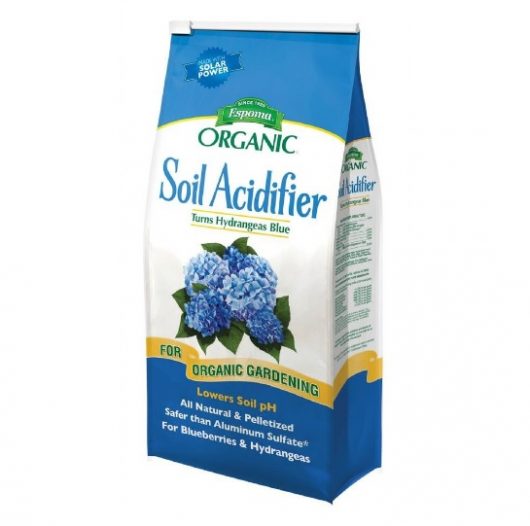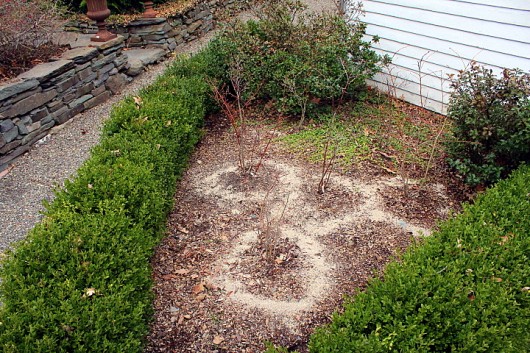To make soil more acidic for blueberries, add elemental sulfur or organic materials like pine needles and peat moss. Regularly test soil pH to monitor acidity levels.
Blueberries thrive in acidic soil, ideally with a pH between 4. 5 and 5. 5. Acidic conditions enhance nutrient absorption and improve plant health. Many gardeners struggle to achieve the right soil balance for these berries. Soil amendments can help create the perfect environment for growing juicy, flavorful blueberries.
:max_bytes(150000):strip_icc()/Methods-for-Increasing-Soil-Acidity-11d2b05df5b6403fa2e983ec61faf672.png)
Credit: www.thespruce.com
Incorporating organic materials not only lowers pH but also enriches soil texture. Understanding how to adjust soil acidity effectively can lead to a bountiful harvest. This guide will provide practical tips to ensure your blueberries receive the optimal conditions for growth. Start transforming your soil today for a healthier blueberry crop!
How to Make Soil More Acidic for Blueberries : Step by Step Guide
Introduction To Blueberry Soil Requirements
Blueberries thrive in acidic soil. The ideal pH level for blueberries is between 4.5 and 5.5. This acidity helps the plants absorb nutrients better. Adjusting soil pH can enhance blueberry growth.
Soil acidity is crucial for blueberry health. High acidity keeps harmful bacteria away. It also prevents nutrient lock-up. This means blueberries get essential nutrients easily.
| Soil pH Level | Blueberry Growth |
|---|---|
| Below 4.5 | Poor growth and nutrient issues |
| 4.5 – 5.5 | Optimal growth and health |
| Above 5.5 | Stunted growth and nutrient absorption problems |
Testing Soil Ph Before Planting
Testing the soil pH is essential for growing blueberries. A soil pH tester helps determine acidity levels. Several types of testers are available, such as digital, chemical, and probe testers. Digital testers provide quick and accurate readings. Chemical testers are often cost-effective and easy to use. Probe testers are handy for checking soil in different spots.
After testing, interpreting the results is crucial. Blueberries prefer a pH between 4.5 and 5.5. If the pH is higher, amendments are necessary. Sulfur and peat moss are common options to lower pH. Always follow the instructions on amendment products for the best results.
Natural Methods To Increase Soil Acidity
Using organic materials is a great way to make soil more acidic. Pine needles are one effective option. They break down slowly and add acidity to the soil.
Coffee grounds can also help. They are slightly acidic and improve soil quality. Mixing them into the soil boosts acidity.
Compost made from acidic plants, like azaleas or rhododendrons, adds nutrients. This also helps lower the pH level.
Incorporating sulfur is another method. Elemental sulfur turns into sulfuric acid when it decomposes. It is important to apply it at the right time for best results.
Follow package instructions for the correct amount. Test soil pH regularly to monitor changes.

Credit: www.agardenforthehouse.com
Chemical Solutions For Adjusting Ph
Applying Aluminum Sulfate is a popular method to make soil more acidic. This chemical lowers the soil’s pH effectively. Follow these safety measures to ensure proper handling:
- Wear gloves and goggles to protect your skin and eyes.
- Use a mask to avoid inhaling dust.
- Store Aluminum Sulfate in a cool, dry place away from children.
- Always read the label for specific instructions and warnings.
After applying Aluminum Sulfate, monitor the soil pH regularly. Aim for a pH between 4.5 and 5.5 for optimal blueberry growth.
Improving Soil Conditions With Compost
Choosing the right compost is key for blueberry plants. Look for compost made from organic materials like leaves and grass clippings. This type enriches the soil and enhances acidity.
Always check the pH level of compost. Aim for a pH between 5.0 and 6.0 for blueberries. This ensures the plants thrive and produce sweet fruit.
When applying compost, spread it evenly around the base of the plants. Use a layer of about 2 to 4 inches. This helps retain moisture and improves soil texture.
Mix the compost into the top few inches of soil. This allows the roots to absorb nutrients easily. Water the area well after application for best results.

Credit: www.agardenforthehouse.com
Water Quality And Its Effect On Soil Acidity
Water quality can greatly affect soil acidity. Hard water is high in calcium and magnesium. These minerals can raise soil pH. A higher pH means less acidic soil, which is not ideal for blueberries.
Using rainwater is a great option. Rainwater is naturally soft and acidic. It helps lower soil pH effectively. Collect rainwater in barrels for easy use. This method is eco-friendly and beneficial for blueberry plants.
| Water Type | Effect on Soil |
|---|---|
| Hard Water | Raises pH, less acidic |
| Rainwater | Lowers pH, more acidic |
Maintaining Soil Acidity Over Time
Regular pH testing helps maintain soil acidity for blueberries. Check the soil pH at least once a year. Use a simple pH test kit available at garden stores.
To adjust soil amendments, consider using sulfur or peat moss. These materials help lower the soil’s pH. Organic matter can also improve soil structure.
Mix amendments into the soil evenly. This ensures that the blueberries receive the nutrients they need. Monitor the pH regularly to keep it at the desired level.
Common Mistakes To Avoid
Over-acidifying the soil can harm blueberry plants. Aim for a pH of 4.5 to 5.5. Adding too much sulfur can lead to toxicity. Always follow recommended guidelines for amendments.
Neglecting periodic testing is a common mistake. Regular pH tests help track soil conditions. Test soil at least once a year. This ensures your blueberries thrive in the right environment.
Frequently Asked Questions
How Can I Check Soil Acidity For Blueberries?
You can check soil acidity using a pH meter or a soil test kit. These tools measure pH levels accurately. Ideally, blueberry soil should be between 4. 5 and 5. 5 pH. Regular testing helps you maintain the right conditions for healthy blueberry plants.
What Materials Can I Use To Acidify Soil?
Common materials to acidify soil include sulfur, peat moss, and pine needles. Elemental sulfur is highly effective and works over time. Peat moss not only lowers pH but also improves soil structure. Pine needles can also help, especially when mulched into the soil.
How Often Should I Acidify The Soil?
You should acidify the soil annually or as needed. Regular testing will guide you on when to apply amendments. Monitor the pH after adjustments to ensure it remains in the ideal range. Consistency is key for healthy blueberry growth.
Can I Use Coffee Grounds For Acidity?
Yes, coffee grounds can help to acidify soil. They are rich in nitrogen and can lower pH slightly. However, use them in moderation to avoid over-acidification. Mixing coffee grounds into compost is a great way to benefit your blueberry plants.
Conclusion
Achieving the right soil acidity is crucial for growing healthy blueberries. By using natural amendments like sulfur or pine needles, you can create the perfect environment. Regular testing will help you maintain the desired pH level. With these tips, your blueberry plants will thrive and produce delicious fruit.
Happy gardening!

